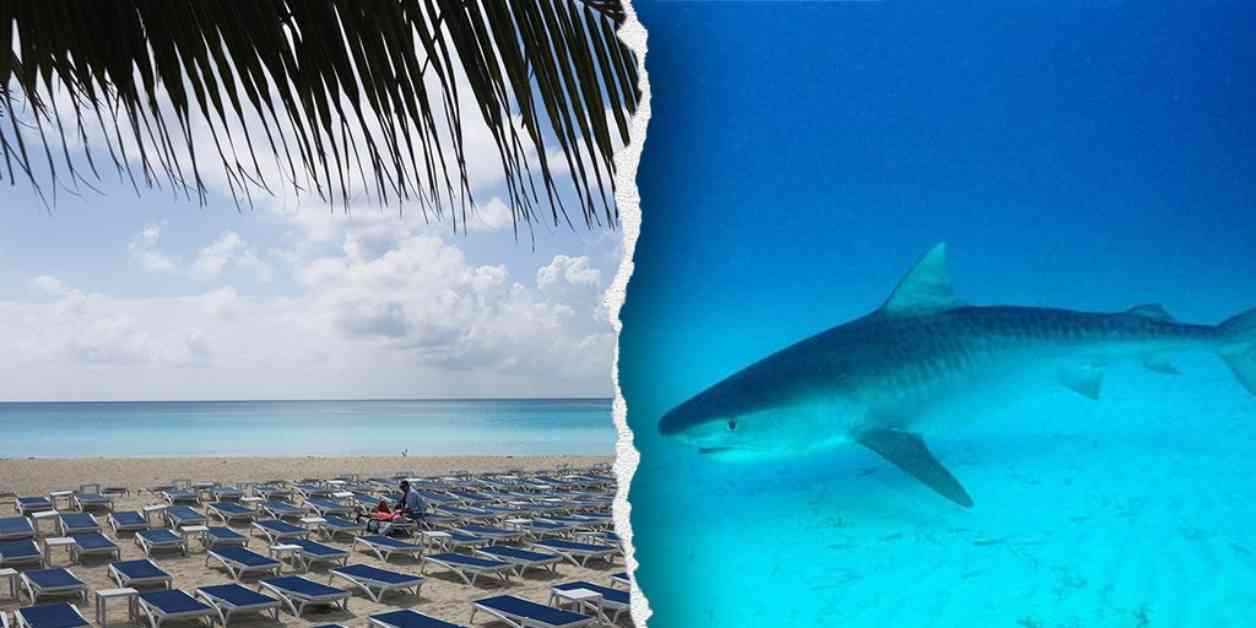A horrific incident unfolded in the crystal-clear waters of Turks and Caicos, leaving a Canadian tourist with a life-altering injury. While enjoying a snorkeling excursion on the picturesque island of Providenciales, the 55-year-old woman found herself in a harrowing encounter with a shark that resulted in the loss of both her hands.
The chilling incident occurred on February 7, sending shockwaves through the tranquil paradise known for its azure waters and sandy beaches. The woman, whose identity remains undisclosed, made a fateful decision to approach the shark for a photograph, an action that would change her life forever.
Witnesses described the scene as chaos ensued when the shark attacked the unsuspecting tourist. Her husband, witnessing the horror unfold, bravely leaped into the water in a desperate attempt to fend off the predator and save his wife. Other beachgoers, overcome with shock and fear, joined the frantic rescue efforts, striving to stem the bleeding and provide aid.
Prompt medical attention was crucial in the aftermath of the attack. The woman was swiftly transported to a local hospital before being airlifted off the island for further specialized care. Tragically, the severity of her injuries necessitated the amputation of both her hands, marking a profound turn in her vacation-turned-nightmare.
The Department of Environment and Coastal Resources (DECR) in Turks and Caicos swiftly responded to the incident, emphasizing the importance of vigilance and caution when engaging with marine life. Following the attack, the beaches in the area were temporarily closed out of an abundance of caution, only to be reopened after thorough assessments and safety measures were implemented.
As the community grappled with the shocking event, authorities issued a heartfelt plea for awareness and respect towards marine wildlife. The DECR underscored the significance of adhering to local advisories, swimming in designated areas, avoiding murky waters, and refraining from feeding marine creatures under any circumstances. Such precautions, though seemingly routine, can make a crucial difference in safeguarding both tourists and the local ecosystem.
While the incident sent ripples of fear through the tranquil waters of Turks and Caicos, it also shed light on the rare yet profound encounters between humans and marine predators. In a span from 2021 to 2025, the island reported a total of four shark attacks, all of which resulted in the survival of the victims. One such incident, occurring on May 23, 2024, involved a male resident who fell victim to a shark attack while snorkeling off the northeast coast of Providenciales, leading to the amputation of his leg above the knee.
This alarming incident coincided with another shark attack on the same day, where two American tourists faced a similar ordeal at a popular beach resort in the Bahamas. The tourists, attacked by a suspected bull shark, sustained serious injuries but are expected to recover fully, highlighting the resilience and spirit of those confronted by such traumatic events.
As the investigation into the shark attacks continues, the communities of Turks and Caicos and the Bahamas remain resilient and united in their commitment to safety and awareness. The incidents serve as poignant reminders of the delicate balance between humans and nature, urging caution and respect in the shared spaces we inhabit.
In a world where paradise can turn perilous in the blink of an eye, the tales of survival and resilience echo across the waves, resonating with a shared sense of vulnerability and strength. As travelers and locals navigate the waters teeming with life and wonder, the shadow of danger looms ever closer, underscoring the fragile dance between humans and the untamed beauty of the ocean.


